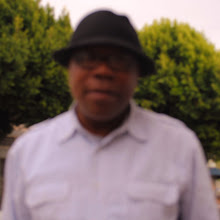DAVID SMITH/THE GUARDIAN
 The ear-splitting vuvuzela will be testing the patience of television viewers during the 2010 World Cup. Photograph: Martin Meissner/AP
The ear-splitting vuvuzela will be testing the patience of television viewers during the 2010 World Cup. Photograph: Martin Meissner/APSouth Africa 2010 might just possibly be the first World Cup that most armchair fans prefer to watch with the volume turned down.
Viewers should expect a riot of colourful hats, exuberant dancing and exotic clichés but the first star of the tournament is likely to be a raucous plastic horn.
For years the metre-long vuvuzela has been blown by South African supporters with as much gusto as Louis Armstrong – but rather less melody.
The collective sound has been compared to a herd of blaring elephants or hive of angry bees. Initially many will find this a charming local custom but once the novelty wears off there may be more than a few complaints of earache both inside stadiums and from TV audiences.
There was a taste of things to come at last year's Confederations Cup in South Africa. Some players grumbled they could not hear each other or the referee. "I find these vuvuzelas annoying," moaned Xabi Alonso, the Spain midfielder. "They don't contribute to the atmosphere in the stadium. They should put a ban on them."
European broadcasters also raised objections that the vuvuzelas drowned out their match commentators, a scenario that could be repeated when South Africans are urged to make a big noise in support of the hosts against Mexico in the opening game on 11 June.
Researchers even claim to have found evidence that vuvuzelas can lead to permanent hearing damage. A study by academics from Pretoria and Florida universities tested the hearing of 11 spectators before and after they attended a South African Premier League match.
The researchers said the average sound exposure during the near two hours was 100.5 decibels and peaked at 144.2 decibels. National standards for occupational noise require hearing protection for workers exposed to 85 decibels and above.
But Fifa has rejected calls for a ban on the vuvuzela, insisting it is an essential part of South Africa's footballing culture. Certainly anyone who has been to the country's most famous club game, the Soweto derby between Kaiser Chiefs and Orlando Pirates, would be hard pushed to disagree.
A ban is also unlikely because manufacturers and retailers are hoping to cash in from vuvuzela sales to thousands of visiting supporters. So one South African company is already marketing foam earplugs specially designed for the World Cup. Viewers at home at least have the option of the remote control.
TV crews seeking "local colour" are likely to settle on fans not only blowing vuvuzelas but also wearing bright facepaint and wigs, the yellow shirt of the national team, Bafana Bafana, a pair of oversized spectacles and, in some cases, traditional Zulu animal skins with shield and spear.
The most popular match-day headgear is the makarapa, a variation on the miner's helmet, an icon in mining cities such as Johannesburg, topped by elaborate decorations and images in bright colours. Its inventor, Alfred Baloyi, started making them 30 years ago in a tiny shack in a township and is now running his own studio producing a hundred a day with the help of companies such as Coca-Cola.
"I want to be able to switch on the TV and see everyone wearing a makarapa – that is my biggest hope," Baloyi said recently.
Before games viewers should also expect the inevitable picture postcards of the host nation. It will be instructive to see how the opening titles sequences strike a balance between African archetypes of lions, jungles and tribal dancers and the reality of South African's modern cities: skyscrapers, shopping malls and hi-tech stadiums.
Montages of a beaming Nelson Mandela, the country's first black president, holding aloft the rugby World Cup trophy are likely, along with troupes of smiling South Africans doing the diski, an official World Cup dance intended to capture "the rhythm of African football".
Organisers hope that cameras will show otherwise impoverished townships coming alive with football fever, which may depend on Bafana Bafana, ranked 90th in the world, performing above expectations. If white South Africans – who normally prefer rugby union – also wave the flag, there will be much talk of football unifying the rainbow nation, as it did for Germany four years ago.
The broadcasters will not let anyone forget that this is the first World Cup or Olympics on the African continent. But not until kick-off will we know if Jonathan Pearce at his most exuberant can make himself heard above the mighty vuvuzela.
Please, make it stop!
Fifa has resisted all demands for action but the Guardian has searched for a solution to remove the vuvuzela noise from TV broadcasts. Professor Selwyn Wright, who patented the Active Noise Control System in Unrestricted Space in 2003, explained: 'Our system measures the exact noise and inverts it. Then you add that to the original noise and cancel it. But this is a very complicated noise source. If every trumpet made an identical noise you'd be all right but they're producing different notes at different times. If you were standing next to one person with a trumpet, you could cancel it.'
Dan Gauger, research manager for noise reduction at Bose, says: 'The short answer is I don't see a way to do what you're looking for. While it's a fairly steady drone, it's made up of a lot of frequencies over a very wide range, which overlaps with a lot of the frequencies that the human voice occupies.' Take away the vuvuzela, in other words, and the commentators, the chants, the essential background hubbub of sport, would go too.
The solution exists and is called the mute button.



